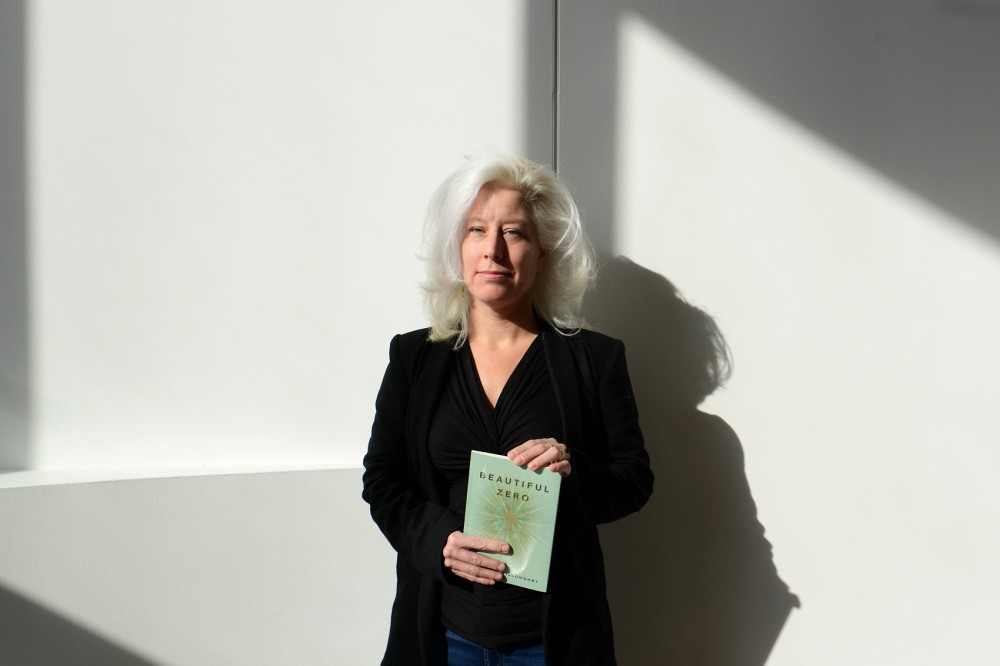From college football to the health care system, Jennifer Willoughby’s poetry doesn’t dwell too long on one subject before shifting to something completely different.
As part of the creative writing program’s annual “First Books with Creative Writing MFA Alums” event, Willoughby, a 2006 graduate of the program, will read from her recently published book, “Beautiful Zero,” Thursday at Weisman Art Museum. Her collection of poems won the 2015 Lindquist & Vennum Prize for Poetry, awarded in part by local publishing house Milkweed Editions, which published the book.
What themes and ideas do you write about in your poetry?
Oh, I don’t know — my poems are weird little universes. They’re not narratives as much as describing a moment in time or trying to get close to something. There’s a section of the book that’s set at a Kaiser Permanente hospital that’s about mortality and health care and American pop culture. I don’t have an overarching theme that carries through the book; things just pop in my head.
When did you first start writing poetry?
I suppose I started in high school with English class, and then I studied English at St. Kate’s as an undergrad, and then I went to the U of M’s writing program. I can’t really explain how I got started — I was a reader and a nerdy kid, and I didn’t talk much. It seemed like it was easier to express myself through poetry than through human interaction.
What experiences from grad school did you find really valuable?
My favorite thing about grad school was teaching. As part of the program, we got to teach — first as TAs; then we got stand-alone classes. I think working with other students who were maybe a few years younger than I was but were also excited about poetry and writing was eye-opening for me. [Teaching] also taught me a lot about confidence and how to talk about poetry with people and helped me figure out what I like about it. They give you energy, having a classroom full of students, and they challenge you.
What’s your process for writing poetry?
Because I’m a freelance advertising copywriter, my work schedule is conducive to short bursts of creativity. I usually come to a poem through language, through sounds or some phrase, and then I let it percolate for a while and come back and flesh it out. I like writing poetry because you get that sense of closure faster. You know right away whether it’s going to be good or not.
How do you balance your professional work as an advertising copywriter and your creative work as a poet?
They feed off each other. I write all the time, and advertising is always about thinking about words and getting subject ideas. I get energy from advertising because I write about all different kinds of stuff, from health care to retail to tech, which inspires my poetry. Advertising has really taught me how to be concise. Everything has to be as short as possible, and words have to be quick to grab somebody and get some emotional reaction from whoever’s reading it. So I think it cross-pollinates [with my poetry].
Why do you think people should read poetry?
I think it’s a way of getting close to something. It’s another form of communicating that focuses in on the little moments of your relationships. It just gets at something — there’s a spiritual angle to it that makes it an art form that gives people a sense of being connected.
First Books with Creative Writing MFA Alums
Where Weisman Art Museum, 333 East River Road, Minneapolis
When 7 p.m. Thursday
Cost Free








